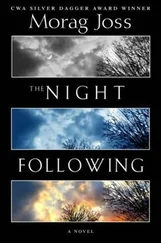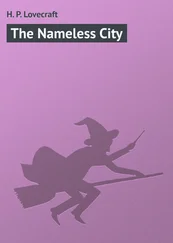Maurus Jokai - The Nameless Castle
Здесь есть возможность читать онлайн «Maurus Jokai - The Nameless Castle» весь текст электронной книги совершенно бесплатно (целиком полную версию без сокращений). В некоторых случаях можно слушать аудио, скачать через торрент в формате fb2 и присутствует краткое содержание. Город: New York, Год выпуска: 1898, Издательство: Doubleday, Page & Company, Жанр: Историческая проза, на английском языке. Описание произведения, (предисловие) а так же отзывы посетителей доступны на портале библиотеки ЛибКат.
- Название:The Nameless Castle
- Автор:
- Издательство:Doubleday, Page & Company
- Жанр:
- Год:1898
- Город:New York
- ISBN:нет данных
- Рейтинг книги:4 / 5. Голосов: 1
-
Избранное:Добавить в избранное
- Отзывы:
-
Ваша оценка:
- 80
- 1
- 2
- 3
- 4
- 5
The Nameless Castle: краткое содержание, описание и аннотация
Предлагаем к чтению аннотацию, описание, краткое содержание или предисловие (зависит от того, что написал сам автор книги «The Nameless Castle»). Если вы не нашли необходимую информацию о книге — напишите в комментариях, мы постараемся отыскать её.
The Nameless Castle — читать онлайн бесплатно полную книгу (весь текст) целиком
Ниже представлен текст книги, разбитый по страницам. Система сохранения места последней прочитанной страницы, позволяет с удобством читать онлайн бесплатно книгу «The Nameless Castle», без необходимости каждый раз заново искать на чём Вы остановились. Поставьте закладку, и сможете в любой момент перейти на страницу, на которой закончили чтение.
Интервал:
Закладка:
The Marquis de Fervlans had camped with his company of demons on the shore of Neusiedl Lake. The marquis himself had taken quarters at the inn in the nearest village, where, assisted by two companions of questionable respectability but of undoubted valor, he was testing the quality of the fiery wine of the region, when a peasant cart, drawn by three horses, drew up before the inn, and Jocrisse, Baroness Katharina’s messenger, alighted.
“Ah, here comes a sensible fellow,” exclaimed the marquis. “I wonder what news he brings.”
He was very soon enlightened.
“Hum! ‘ Io non posso! ’ ” he repeated, after reading the brief message Jocrisse delivered to him. “Very well, madame, I think I shall know what to do if you ‘cannot’! Jocrisse, how is the country around Odenburg garrisoned?”
“A division of militia cavalry occupies every town,”
“That is exasperating! Not that I fear these militiamen might give my demons too much work; but I am afraid I may alarm them; then they will scamper in all directions, and frighten the entire Neusiedl region, so that when I arrive at Fertöszeg I shall find the birds flown and the nest empty. We must take them by surprise. Have you ever before been in this part of the country, Jocrisse?”
“I accompanied the county surveyor once as far as Frauenkirchen.”
“Is the road practicable for wheels?”
“To Frauenkirchen it is good for wagons; but beyond the city it is in a wretched condition.”
“Very well. You will engage a post-chaise here, and follow us to Frauenkirchen, where you will wait for further orders. What time did you leave Fertöszeg?”
“About noon.”
“Listen. I suspect that your mistress will try to escape with the maid. If that is the case, we must bestir ourselves. But women are afraid to travel by night; and even if they have already left the manor, they cannot have gone very far. The water in the Danube was unusually high on the day of the battle at Aspern; that would cause the Raab to rise, and overflow the bridges crossing it. I shall doubtless overtake the fugitives at Vitnyed.”
“It will be rather risky crossing the Hansag at night,” observed Jocrisse, “and no amount of money would induce one of these natives about here to act as guide. They are a peculiar folk.”
“Yes; but I shall not need a guide. I have an excellent map of the neighborhood, which I used when I was in garrison here. I used to hunt all over this region after wild boars and turkeys, and never had any difficulty finding my way, even at night.”
De Fervlans now sent orders to his troop to break camp at once, with as little stir as possible; and before twilight shadows fell upon the land, the demons were riding toward the Hansag.
If we assume that Marie left the Nameless Castle in company with the wife of Satan Laczi at midnight, we can easily see that she would have but a few hours’ advantage of the demons, who broke camp at sunset. If the latter met with no hindrance on their way, they would overtake the coach of the fugitives at the crossing of the Raab. As it was after midnight when Ludwig Vavel learned of the danger which threatened Marie, he could not, even if he had set out at once, have reached the Hansag before noon of the following day, by which time De Fervlans and his demons would have accomplished their errand. Therefore nothing short of a miracle could save the maid.
CHAPTER II
The miracle happened—a true miracle, like the one of the biblical legend, when the Red Sea obstructed the way of the persecutor Pharaoh.
Those who may doubt this assertion are referred to the “Monograph on Lake Neusiedl,” in which may be read a description of the phenomenon. In the last years Lake Neusiedl had been drained, and where it had joined the lakes of the Hansag, a stout dam had been built. When the waters of the Hansag chain rose, the muddy undercurrent threw up great mounds of earth, like enormous excrescences on a diseased body. One of these huge mounds burst open at the top and emitted a black, slimy mud that inundated the surrounding morass for a considerable distance.
Already in the neighborhood of St. Andras this slimy ooze was noticeable when the troop of demons galloped over the plantain-covered flats which here and there bent under the weight of the horsemen. As they proceeded, the enormous numbers of frogs became surprising, as if this host of amphibia had leagued against the invading demons. Then flocks of water-fowl, with clamorous cries and rustling wings, rose here and there, startled from their quiet nests by the approaching inundation, which by this time had completely hidden what was called in that region the public road. De Fervlans, at a loss what to make of this singular freak of nature, sent a horseman to the right, and one to the left, to examine the ground, and learn whence came the sea of slime, and how it might be avoided. Each of his messengers returned with the information that the slime was flowing in the direction he had ridden. The source, then, must be near where they had halted.
“This is bad,” said De Fervlans, impatiently. “This eruption of mud will hinder our progress. We can’t run a race with it. We must look up another route, and this will delay us perhaps for hours. But we can make that up when on a hard road again.”
De Fervlans, who was familiar with the neighborhood, now led his troop in the direction of the path which ran through the morass toward the village of Banfalva, hoping thus to gain the excellent highway of Eszterhaza. Here and there from the swamp rose slight elevations of dry earth which were overgrown with alders and willows. On one of these “hills” De Fervlans concluded to halt for a rest, as both men and horses were weary with the toilsome journey over the wretched roads.
Very soon enough dry wood was collected for a fire. There was no need to fear that the light might attract attention; the camp was far enough from human habitation, and neither man nor beast ever spent the night in the morass of the Hansag. Besides, they could have seen, from the top of a tree, if any one were approaching. They could see in the bright moonlight the long poplar avenue which led to Eszterhaza; and even a gilded steeple might be seen gleaming in the Hungarian Versailles, which was perhaps a two hours’ ride distant.
Suddenly the sharp call, “ Qui vive? ” was heard. It was answered by a sort of grunt, half-brute, half-human. Again the challenging call broke the silence, and was followed in a few seconds by a gunshot. Then a wild laugh was heard at some distance from the hill. De Fervlans hurried toward the guard.
“What was it?” he asked.
“I don’t know whether it was a wild beast or a devil in human form,” was the reply. “It was a strange-looking monster with a large head and pointed ears.”
“I’ll wager it is my runaway fish-boy!” exclaimed the marquis.
“When I challenged the creature he stood up on his feet, and barked, or grunted, or whatever you might call it; and when I called out the second time he seemed to strike fire with something; at any rate, he did not act in the proper manner, so I fired at him. But I didn’t hit him.”
“I should be sorry if you had,” responded the marquis. “I am convinced that it was my little monster. I taught him to strike fire; and he was evidently attracted by the light of our camp-fire.”
Perhaps it would have been better had the guard shot the amphibious dwarf. Hardly had De Fervlans returned to his seat when the adjutant called his attention to a suspicious flashing in the morass a short distance from the hill on which they were resting. Suddenly, while they were watching the flashes of light, a column of flame rose toward the sky, then another, and another—the morass was on fire in a dozen places.
Читать дальшеИнтервал:
Закладка:
Похожие книги на «The Nameless Castle»
Представляем Вашему вниманию похожие книги на «The Nameless Castle» списком для выбора. Мы отобрали схожую по названию и смыслу литературу в надежде предоставить читателям больше вариантов отыскать новые, интересные, ещё непрочитанные произведения.
Обсуждение, отзывы о книге «The Nameless Castle» и просто собственные мнения читателей. Оставьте ваши комментарии, напишите, что Вы думаете о произведении, его смысле или главных героях. Укажите что конкретно понравилось, а что нет, и почему Вы так считаете.












